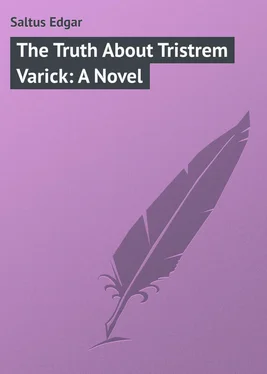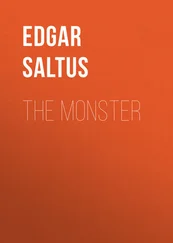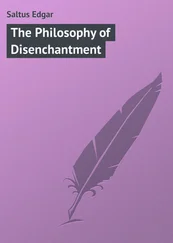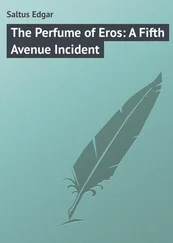Edgar Saltus - The Truth About Tristrem Varick - A Novel
Здесь есть возможность читать онлайн «Edgar Saltus - The Truth About Tristrem Varick - A Novel» — ознакомительный отрывок электронной книги совершенно бесплатно, а после прочтения отрывка купить полную версию. В некоторых случаях можно слушать аудио, скачать через торрент в формате fb2 и присутствует краткое содержание. Жанр: foreign_prose, на английском языке. Описание произведения, (предисловие) а так же отзывы посетителей доступны на портале библиотеки ЛибКат.
- Название:The Truth About Tristrem Varick: A Novel
- Автор:
- Жанр:
- Год:неизвестен
- ISBN:нет данных
- Рейтинг книги:4 / 5. Голосов: 1
-
Избранное:Добавить в избранное
- Отзывы:
-
Ваша оценка:
- 80
- 1
- 2
- 3
- 4
- 5
The Truth About Tristrem Varick: A Novel: краткое содержание, описание и аннотация
Предлагаем к чтению аннотацию, описание, краткое содержание или предисловие (зависит от того, что написал сам автор книги «The Truth About Tristrem Varick: A Novel»). Если вы не нашли необходимую информацию о книге — напишите в комментариях, мы постараемся отыскать её.
The Truth About Tristrem Varick: A Novel — читать онлайн ознакомительный отрывок
Ниже представлен текст книги, разбитый по страницам. Система сохранения места последней прочитанной страницы, позволяет с удобством читать онлайн бесплатно книгу «The Truth About Tristrem Varick: A Novel», без необходимости каждый раз заново искать на чём Вы остановились. Поставьте закладку, и сможете в любой момент перейти на страницу, на которой закончили чтение.
Интервал:
Закладка:
It so happened that one day the headmaster summoned Tristrem to him. "My dear," he said, "Royal is not acting quite as he should, is he?" To this Tristrem made no reply. "He is a motherless boy," the master continued, "a poor motherless boy. I wish, Tristrem, that you would use your influence with him. I see but one course open to me, unless he does better – " Tristrem was a motherless boy himself, but he answered bravely that he would do what he could. That evening, as he was battling with the platitudes of that Augustan bore who is called the Bard of Mantua, presumably because he was born in Andes – Weldon came in, smelling of tobacco and drink. It was evident that he had been to town.
Tristrem looked up from his task, and as he looked he heard the step of a tutor in the hall. He knew, if the tutor had speech with Weldon, that on the morrow Weldon would leave the school. In a second he had seated him before the open dictionary, and in another second he was kneeling at his own bedside. Hardly had he bowed his head when there came a rap at the door, the tutor entered, saw the kneeling figure, apologized in a whisper, and withdrew.
When Tristrem stood up again, Weldon was sobered and very pale. "Tristrem – " he began, but Tristrem interrupted him. "There, don't say anything, and don't do it again. To-morrow you had better talk it over with the doctor."
Weldon declined to talk it over with anyone, but after that he behaved himself with something approaching propriety. Two years later, in company with his friend, he entered Harvard, from which institution he was subsequently dropped.
Tristrem meanwhile struggled through the allotted four years. He was not brilliant in his studies, the memorizing of abstruse questions and recondite problems was not to his liking. He preferred modern tongues to dead languages, an intricate fugue was more to his taste than the simplest equation, and to his shame it must be noted that he read Petrarch at night. But, though the curriculum was not entirely to his fancy, he was conscientious and did his best. There are answers that he gave in class that are quoted still, tangential flights that startled the listeners into new conceptions of threadbare themes, totally different from the usual cut and dried response that is learned by rote. And at times he would display an ignorance, a stupidity even, that was fathomless in its abysses.
After graduation, he went abroad. England seemed to him like a rose in bloom, but when autumn came and with it a succession of fogs, each more depressing than the last, he fled to Italy, and wandered among her ghosts and treasuries, and then drifted up again through Germany, to Paris, where he gave his mornings to the Sorbonne and his evenings to orchestra-stalls.
II
It was after an absence of nearly five years that Tristrem Varick returned to the States. He had wearied of foreign lands, and for some time previous he had thought of New York in such wise that it had grown in his mind, and in the growing it had assumed a variety of attractive attributes. He was, therefore, much pleased at the prospect of renewing his acquaintance with Fifth Avenue, and during the homeward journey he pictured to himself the advantages which his native city possessed over any other which he had visited.
He had not, however, been many hours on shore before he found that Fifth Avenue had shrunk. In some unaccountable way the streets had lost their charm, the city seemed provincial. He was perplexed at the discovery that the uniform if depthless civility of older civilizations was rarely observable; he was chagrined to find that the minutiæ which, abroad, he had accepted as a matter of course, the thousand trifles which amount, after all, to nothing particularly indispensable, but which serve to make mere existence pleasant, were, when not overlooked, inhibited by statute or custom.
In the course of a week he was surprised into reflecting that, while no other country was more naturally and bountifully favored than his own, there was yet no other where the art of living was as vexatiously misunderstood.
Of these impressions he said nothing. His father asked him no questions, nor did he manifest a desire for any larger sociological information than that which he already possessed. His grandfather was too irascible for anyone to venture with in safety through the shallows of European refinements, and of other relatives Tristrem could not boast. Few of his former friends were at once discoverable, and of those that he encountered some had fallen into the rut and routine of business life, some had married and sent in their resignations to everything but the Humdrum, and some passed their days in an effort to catch a train.
For the moment, therefore, there was no one to whom Tristrem could confide his earliest impressions, and in a month's time the force of these impressions waned; the difference between New York and Paris lost much of its accent, and in its place came a growing admiration for the pluck and power of the nation, an expanding enthusiasm for the stretch and splendor of the land.
During the month that followed, an incident occurred which riveted his patriotism forever. First among the friends and acquaintances whom Tristrem sought on his return was Royal Weldon. Outwardly the handsome, turbulent boy had developed into an admirable specimen of manhood, he had become one on whom the feminine eye likes to linger, and in whose companionship men feel themselves refreshed. His face was beardless and unmustached, and into it had come that strength which the old prints give to Karl Martel. In the ample jaw and straight lips was a message which a physiognomist would interpret as a promise of successful enterprise, whether of good or evil. It was a face which a Crusader might have possessed, or a pirate of the Spanish main. In a word, he looked like a man who might be a hero to his valet.
Yet, despite this adventurous type of countenance, Weldon's mode of life was seemingly conventional. Shortly after the removal from Harvard, his father was mangled in a railway accident and left the planet and little behind him save debts and dislike. Promptly thereupon Royal Weldon set out to conquer the Stock Exchange. For three years he grit his teeth, and earned fifteen dollars a week. At the end of that period he had succeeded in two things. He had captured the confidence of a prominent financier, and the affection of the financier's daughter. In another twelvemonth he was partner of the one, husband of the other, and the taxpayer of a house in Gramercy Park.
Of these vicissitudes Tristrem had been necessarily informed. During the penury of his friend he had aided him to a not inconsiderable extent; though afar, he had followed his career with affectionate interest, and the day before Weldon's wedding he had caused Tiffany to send the bride a service of silver which was mentioned by the reporters as "elegant" and "chaste." On returning to New York, Tristrem naturally found the door of the house in Gramercy Park wide open, and it came about that it was in that house that his wavering patriotism was riveted.
This event, after the fashion of extraordinary occurrences, happened in a commonplace manner. One Sunday evening he was bidden there to dine. He had broken bread in the house many times before, but the bread breaking had been informal. On this particular occasion, however, other guests had been invited, and Tristrem was given to understand that he would meet some agreeable people.
When he entered the drawing-room, he discovered that of the guests of the evening he was the first to arrive. Even Weldon was not visible; but Mrs. Weldon was, and, as Tristrem entered, she rose from a straight-backed chair in which she had been seated, and greeted him with a smile which she had copied from a chromo.
Читать дальшеИнтервал:
Закладка:
Похожие книги на «The Truth About Tristrem Varick: A Novel»
Представляем Вашему вниманию похожие книги на «The Truth About Tristrem Varick: A Novel» списком для выбора. Мы отобрали схожую по названию и смыслу литературу в надежде предоставить читателям больше вариантов отыскать новые, интересные, ещё непрочитанные произведения.
Обсуждение, отзывы о книге «The Truth About Tristrem Varick: A Novel» и просто собственные мнения читателей. Оставьте ваши комментарии, напишите, что Вы думаете о произведении, его смысле или главных героях. Укажите что конкретно понравилось, а что нет, и почему Вы так считаете.












